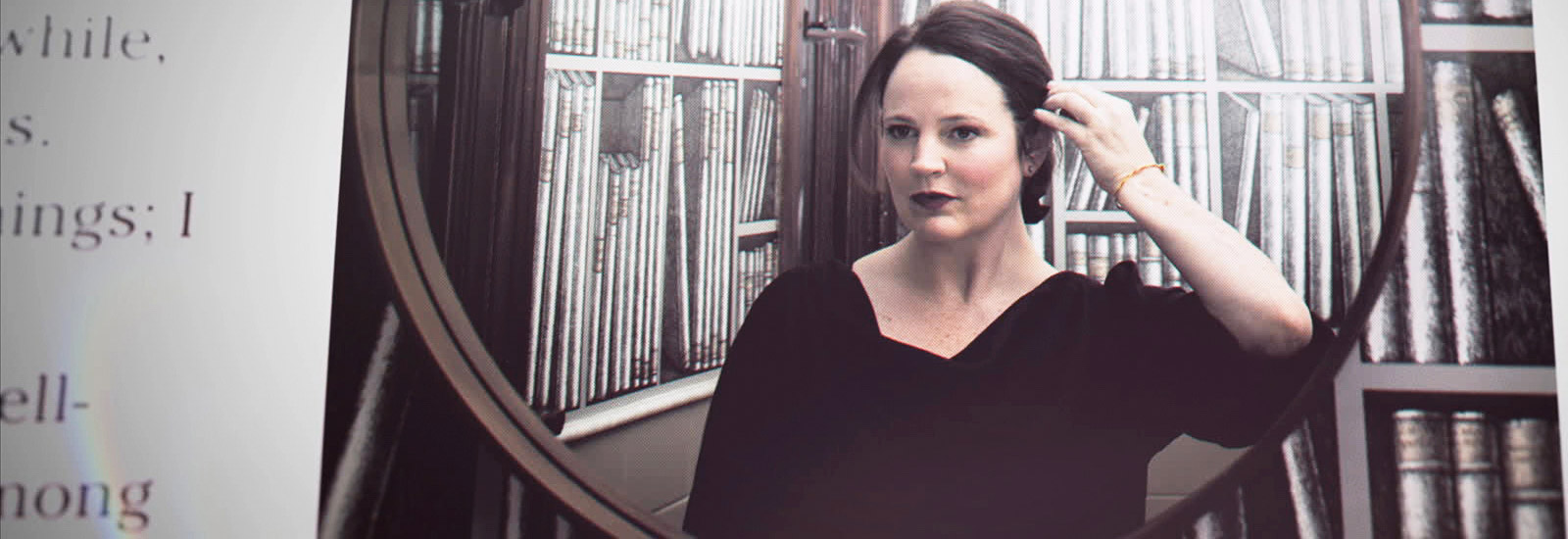“I had a murder habit and it was bad…” – Michelle McNamara
I’ll Be Gone In The Dark, the six-part HBO docuseries that revolves around Michelle McNamara’s 2018 true-crime masterpiece, isn’t a standard true-crime series. It’s much more than that, just like McNamara’s work transcended the rest of her nonfiction literary genre. It must also be noted that the Liz Garbus-directed series is more than a straight-up adaptation of the book itself. Yes, the project digs deep into McNamara’s writings, but it’s also a “portrait of an artist” — one who pursued justice for dozens of survivors and victims’ families, decades after law enforcement let the case go cold. It’s about those survivors, and it’s about the citizen investigators, including Michelle. She was a wife, a mother, a friend, a blogger, and, yes, an obsessive, who was instrumental in solving this case, but not before it consumed her as well.
The obsession factor tears through the book and the series on several levels. Take McNamara’s meticulous piecing together of maps and clues and methods, the places and times where she wrote, her wildly popular website, and her 2013 article in Los Angeles Magazine that traced his footsteps — all of it points toward her dedication. She was obsessed with catching a madman, who was obsessed with his victims’ lives, watching their patterns and casing their existence before invading their homes, where he committed 50 rapes and 12 murders in the state of California throughout the 1970s and ’80s. Well, Michelle cased his psyche and tore apart his methods, and following her 2016 death (due to an accidental overdose of prescription medication, which was tied to the nightmares fueled by this case), her determination is unquestionably what inspired one detective to push harder with new DNA innovations to pin down a suspect.
Joseph James DeAngelo is expected to plead guilty, the day after this series debuts.

This documentary series isn’t really about DeAngelo, though, in the sense that he’s not given the spotlight once he’s apprehended. The way that this happens — this refusal to humanize him, to even speak his name more than necessary — is glorious and a fine flourish in an often devastating series. In this way, Liz Garbus honors Michelle’s quest to ensure that a victory in this case is about illuminating the stories of survivors and victims’ families. It’s about giving life back after decades of living with the ongoing terror that the Golden State Killer (once known as the East Area Rapist) wrought. More importantly, it’s about stripping away the final shreds of power held by a predator.
I’ll Be Gone In the Dark should be undertaken with a trigger warning. It’s not light viewing by any stretch, although it is ultimately affirming and a celebration of McNamara’s prowess. By the very nature of the story, the series is dramatic and suspenseful, but in no way does this series sensationalize the violent crimes that sparked McNamara’s search for justice. She deftly wrote about terrifying subject matter in an empathetic and non-sensationalized way. Never in her mind did she forget that the victims weren’t mere numbers. Instead, she was interested in people, and Michelle was unfailingly human as well. If you haven’t read the book, Amy Ryan’s reading of passages within the series will get you up to speed, soon after opening titles roll under an Aimee Mann cover of Leonard Cohen’s “Avalanche.” Like the lyrics of that song, Michelle wished to conquer pain: by throttling it and ripping away what it took away for all those years.
That’s exactly how Garbus directs this enormous undertaking of a TV series. She pieces together excerpts of Michelle’s 2018 book — which was completed by investigative journalist Billy Jensen and crime writer Paul Haynes with a greenlight from her husband, Patton Oswalt, who penned the afterword — with interviews from survivors (who react to the arrest), investigators, and Oswalt. Ultimately, this is an expansive docuseries that more than adequately does service to the epic source material.
Beyond that, even, the series contextualizes the shelving of the case for far too long. The “hows” and “whys” there are important, and if not for the dogged determination of Michelle, and her fellow amateur sleuths (and the message board for A&E’s Cold Case where many of them originally congregated), the Golden State Killer may have gone to his grave with his secret. Instead, he will soon be reduced to an afterthought within HBO’s I’ll Be Gone In The Dark series, the very title of which (like Michelle’s book) takes his words — once voiced to a victim after an hours-long sexual assault — and claims them in the name of justice. This is no paint-by-numbers true-crime docuseries. There’s no straightforward telling of events here, no singular “aha!” moment to be found. Instead, this is a six-hour journey that illuminates the power of survival and pays proper tribute to the unmatched legacy of writer Michelle McNamara.
HBO’s ‘I’ll Be Gone In The Dark’ premieres on Sunday, June 28 at 10:00pm EST.







